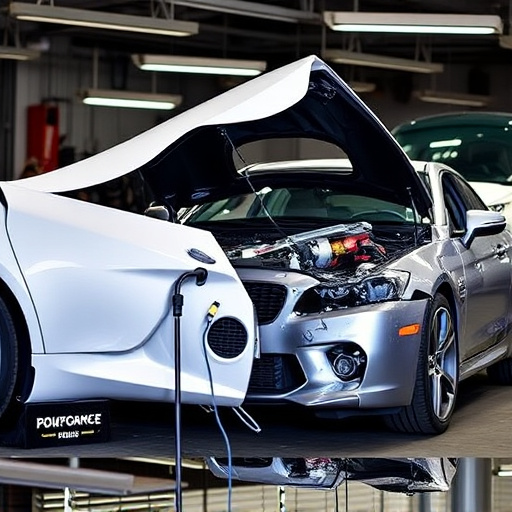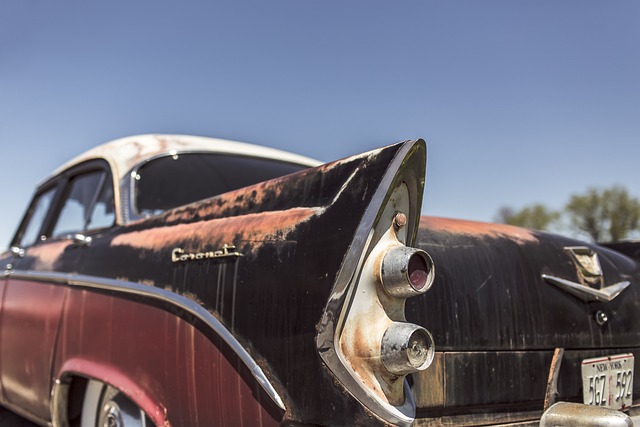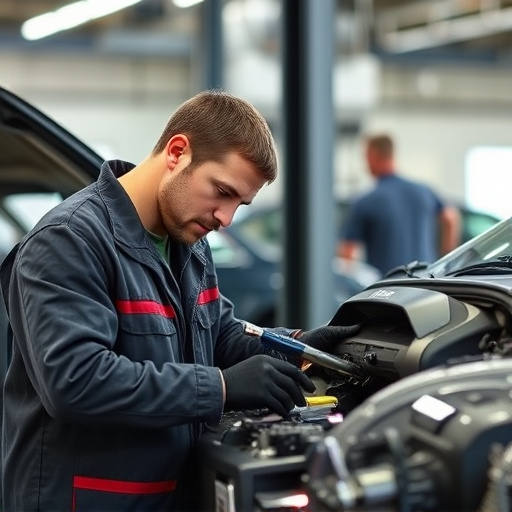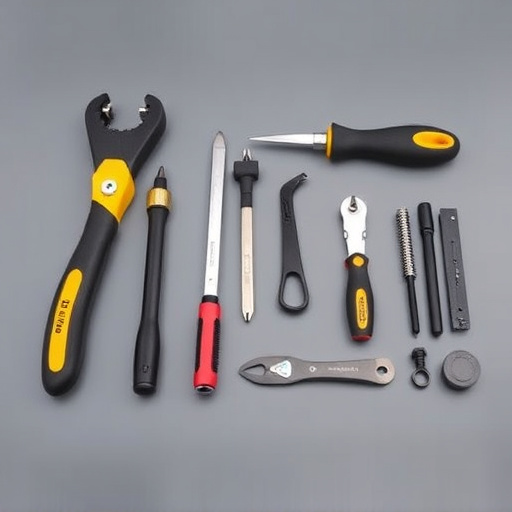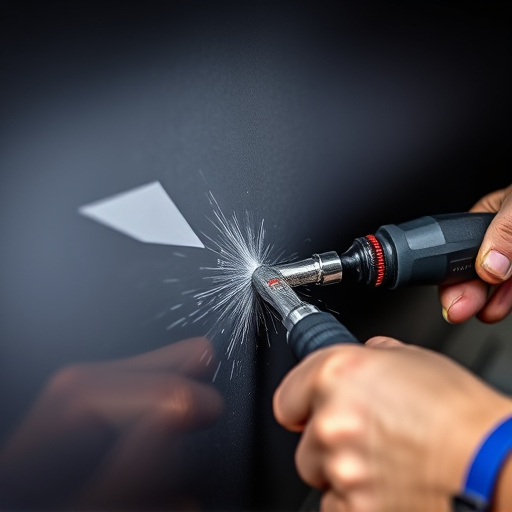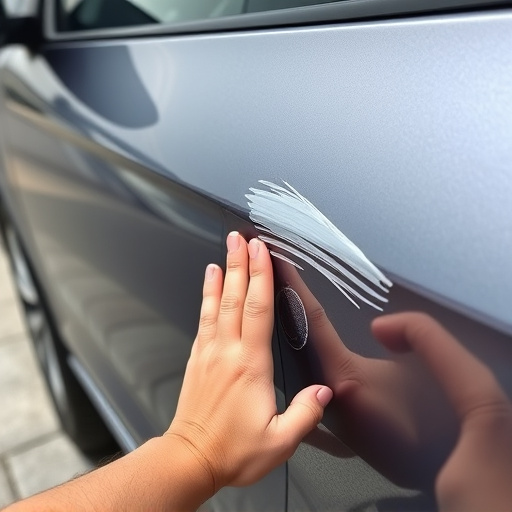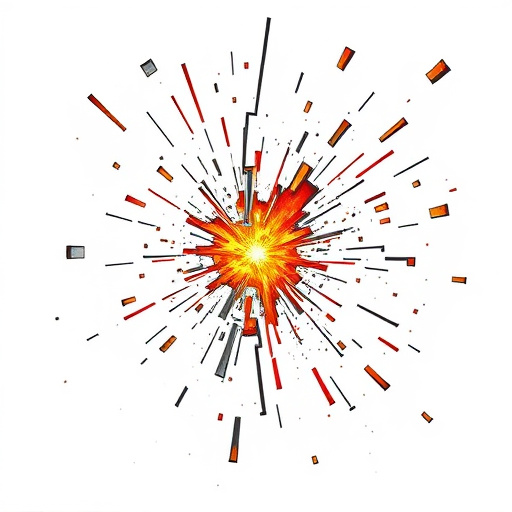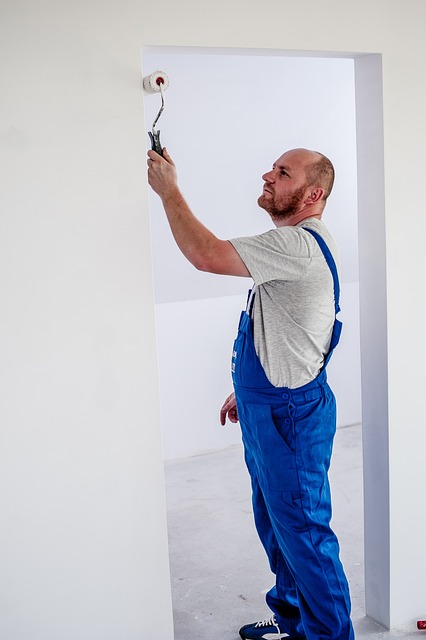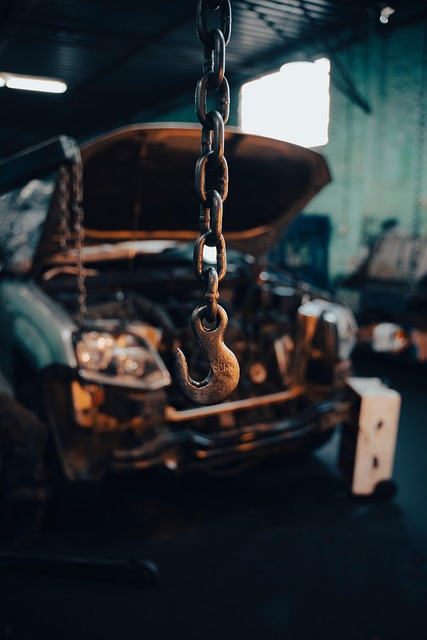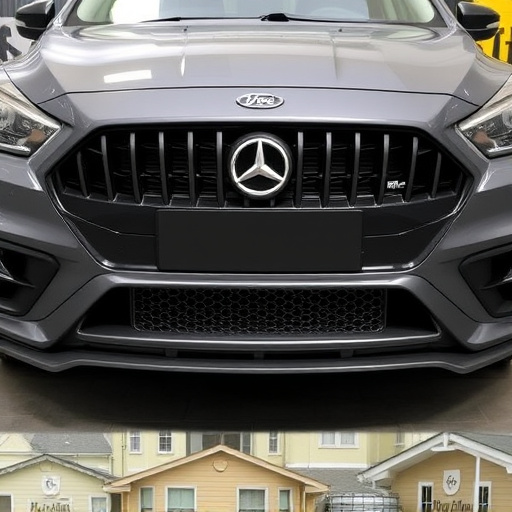Auto glass installation goes beyond replacement, adhering to strict safety standards for drivers' protection. These standards govern glass composition, angles, and sealing quality, ensuring durability, collision safety, and structural integrity. Certified professionals with specialized training use advanced techniques and tools, meeting industry benchmarks and integrating seamlessly into car repair processes. Reputable companies maintain high Quality Assurance through inspections, certified materials, guarantees, and adherence to automotive best practices, prioritizing customer safety and peace of mind.
Auto glass installation is a critical safety feature, ensuring drivers’ protection and vehicle structural integrity. This article delves into who is responsible for upholding stringent safety standards during auto glass fitting. We explore the significance of understanding these standards, the role of certified professionals with specialized training, and the quality assurance measures in place to protect both consumers and road safety. By examining these key aspects, we shed light on why proper auto glass installation is paramount.
- Understanding Auto Glass Safety Standards
- The Role of Certification and Training in Installation
- Quality Assurance and Customer Protection Measures
Understanding Auto Glass Safety Standards

Auto glass installation goes beyond simply replacing a cracked or broken window. It’s a critical process that demands adherence to stringent safety standards designed to protect drivers and passengers. These standards ensure that auto glass is not only durable but also behaves predictably during unexpected events, like car collisions. Safety standards cover various aspects, including the composition of the glass, its installation angle and alignment, and the quality of the sealing materials used to prevent air leaks and water intrusion.
Meetings these requirements isn’t merely a matter of compliance; it’s vital for maintaining optimal visibility, minimizing the risk of injury during accidents, and ensuring the structural integrity of the vehicle. Professional auto glass installers are trained to understand these standards and employ specialized tools and techniques to guarantee that every installation meets or exceeds safety benchmarks. This meticulous approach extends beyond replacing a broken windshield; it encompasses the entire car collision repair process, including fender repair and other bodywork services, ultimately contributing to safer driving conditions for everyone on the road.
The Role of Certification and Training in Installation

In the realm of auto glass installation, certification and training play a pivotal role in ensuring safety standards are met. Professional installers are required to undergo rigorous courses that educate them on the latest industry practices, safety protocols, and technical skills needed for accurate installations. This specialized training covers various aspects, from understanding different types of auto glass to mastering advanced techniques for proper sealing and alignment.
Certification programs validate the knowledge and competence of these technicians, providing assurance to vehicle owners that their auto glass repairs or replacements adhere to high standards. Many reputable certification bodies offer specialized courses tailored to both front-end and rear window installations, as well as side mirrors. This comprehensive approach ensures that every aspect of auto bodywork, from bumper repair to more intricate body shop services, is handled by skilled professionals who prioritize safety in every step of the process.
Quality Assurance and Customer Protection Measures

When it comes to auto glass installation, ensuring quality and safety is paramount. Reputable auto glass companies employ robust Quality Assurance (QA) processes to guarantee that every installation meets or exceeds industry standards. This includes rigorous inspections at various stages of the installation process, using only certified materials and following best practices outlined by leading automotive organizations.
In addition to internal QA measures, these businesses often offer customer protection guarantees. Such warranties safeguard consumers against defects in materials or workmanship, providing peace of mind after a collision center or auto maintenance service. This commitment to customer satisfaction reflects the company’s dedication to not just auto body restoration but also ensuring the safety and comfort of every driver on the road.
Auto glass installation safety is paramount, ensuring both vehicle integrity and driver protection. This is achieved through a multi-faceted approach involving understanding stringent safety standards, adhering to certification requirements, and implementing robust quality assurance measures. Reputable auto glass providers prioritize training for their technicians, utilizing advanced equipment, and employing customer protection protocols to guarantee every installation meets or exceeds industry benchmarks. By focusing on these aspects, they ensure the highest level of safety and satisfaction for vehicle owners across all installations.
